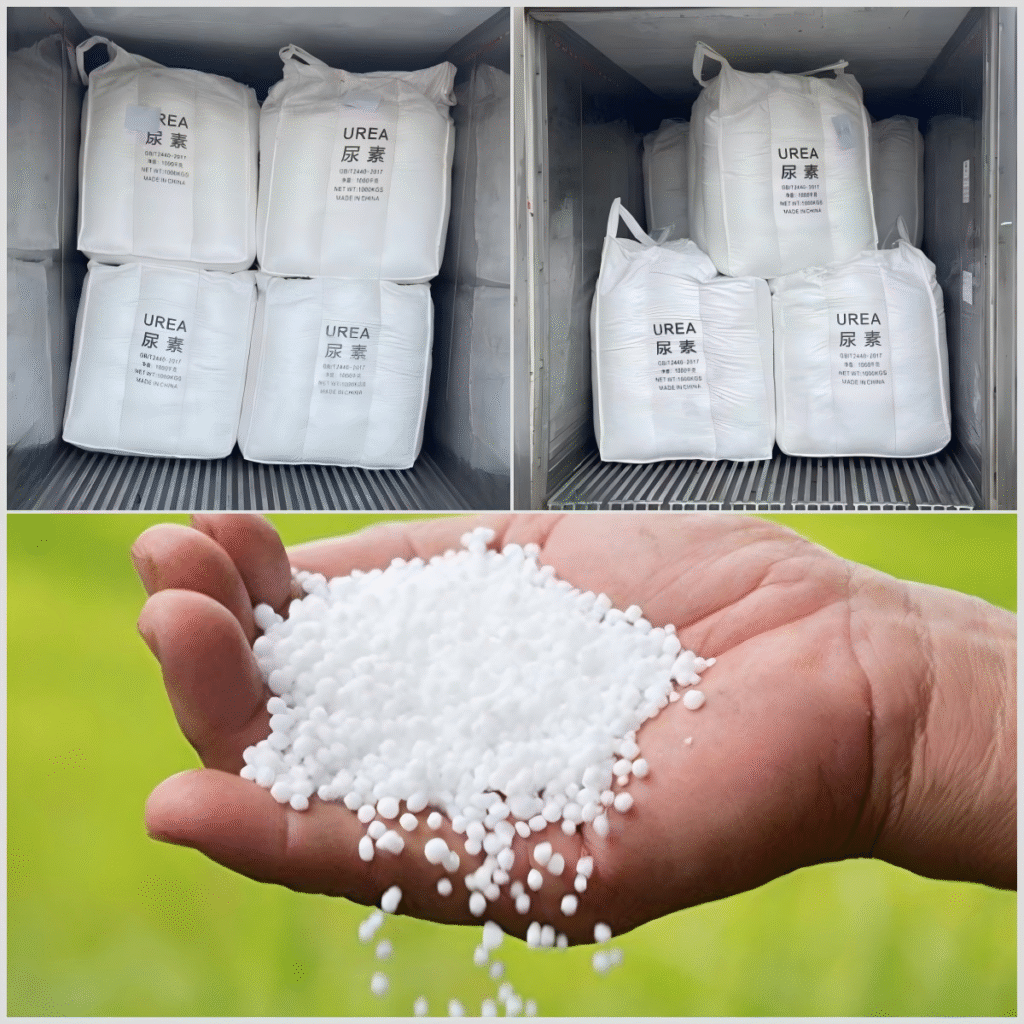What Is Urea Fertilizer?
Urea fertilizer is a widely used nitrogen-based product essential for plant growth. It contains 46% nitrogen, making it one of the most concentrated nitrogen fertilizers available. Farmers prefer urea for its affordability, effectiveness, and fast-acting performance.
China: The Global Leader in Urea Production
China is the world’s largest producer and exporter of urea fertilizer. The country operates hundreds of manufacturing plants with cutting-edge production lines. These facilities ensure steady global supply and meet the high demand from agricultural regions worldwide.
With competitive pricing and strict quality control, Chinese urea maintains a strong presence in international markets. Buyers from Asia, Africa, and Latin America rely on China for timely shipments and consistent quality.
Urea Fertilizer Applications in Agriculture
Urea supports a wide range of crops, including rice, corn, wheat, and vegetables. It plays a critical role in increasing yields and improving crop quality. Farmers often apply urea before planting or as a top dressing during the growing season.
Urea can be broadcasted on soil or dissolved in water for irrigation. Some farmers blend it with other fertilizers for balanced nutrition. Urea’s high nitrogen content promotes lush green leaves and faster crop development.
Advantages of Using Urea Fertilizer
- High Nutrient Content: Delivers 46% nitrogen, ideal for boosting plant growth.
- Cost-Effective: Offers excellent value for large-scale farming operations.
- Quick Results: Fast-acting formula supports immediate nutrient uptake.
- Versatile Use: Suitable for various soil types and crop systems.
These benefits make urea a preferred choice in both developing and developed farming economies.
How to Apply Urea Fertilizer Effectively
Apply urea in moist soil to enhance absorption and minimize loss. Use it during early morning or late evening for best results. Avoid applying before heavy rain, as it can wash away nutrients.
Farmers may use split application methods for better efficiency. Combining urea with inhibitors can reduce nitrogen loss through volatilization. Modern tools like drone sprayers and smart irrigation also improve precision.
Environmental Considerations
While urea offers strong benefits, overuse can lead to environmental concerns. Nitrogen runoff and ammonia emissions may harm nearby ecosystems. Therefore, farmers must follow proper application rates and timing.
Sustainable practices such as soil testing, precision farming, and eco-friendly technologies help reduce negative impacts. The agriculture industry continues to innovate for better environmental outcomes.
The Future of Urea in Global Agriculture
Demand for urea continues to rise as populations grow and food demand increases. China is expanding its production capacity to meet global needs. Innovations in coating and slow-release formulas are also on the rise.
With digital agriculture and smart farming tools, urea will remain essential in modern crop management. Efficient, affordable, and powerful — urea remains the backbone of global agricultural success.
Final Thoughts
Urea fertilizer plays a vital role in feeding the world. Backed by China’s robust production and global distribution, it supports farmers everywhere. With smart use and sustainable practices, urea ensures higher yields and a greener future.


